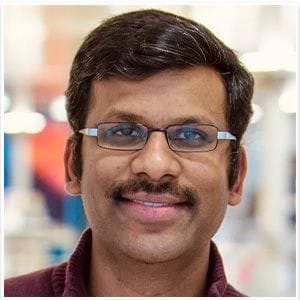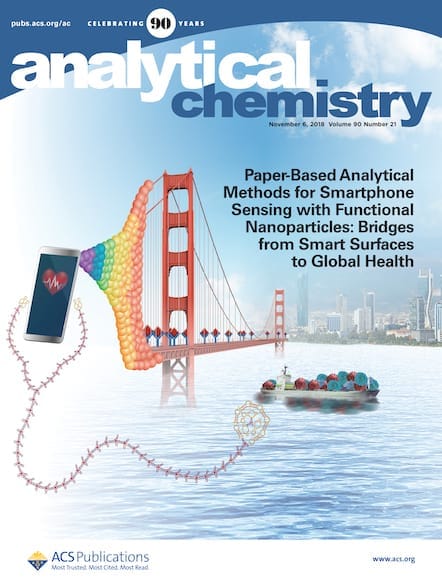This award honors the contributions of an individual who has demonstrated exceptional work in the field of microfluidics or nanofluidics in their early career. Learn more about this year's winner, Govind Kaigala, and his innovative research.

Analytical Chemistry, in partnership with the Chemical and Biological Microsystems Society, are proud to announce the winner of the 2023 Analytical Chemistry Young Innovator Award:
Govind Kaigala, University of British Columbia, Vancouver, Canada
This award honors the contributions of an individual who has demonstrated exceptional technical advancement and innovation in the field of microfluidics or nanofluidics in their early career. Dr. Kaigala was selected for this award for introducing microanalytical tools designed to uncover quantitative profiles of molecular heterogeneity, across scales.
Dr. Kaigala will be honored during MicroTAS 2023, in Katowice, Poland from October 15 – 19, 2023. Learn more about Dr. Kaigala and his research below.

Dr. Kaigala currently is an Associate Professor at the School of Biomedical Engineering, UBC. He is concurrently an investigator at the Life Sciences Institute, a Senior Scientist at the Vancouver Prostate Center, and an associated member of the BC Cancer Research Center.
He earned his Ph.D. from the departments of Electrical and Computer Engineering and Oncology in 2009 from the University of Alberta, where he developed microfluidic systems for genetic analysis. He completed a Natural Sciences and Engineering Research Council of Canada Postdoctoral Fellowship at Stanford University between the Microfluidics Laboratory in the Department of Mechanical Engineering and the Department of Urology at the Stanford Medical School (Veterans Affairs Hospital).
In 2010, he joined the Research laboratory of IBM in Zurich as a Staff Scientist and a Principal Investigator, leading a team of researchers in precision diagnostics. He participated regularly in student training and was a recognized Ph.D. advisor at ETH Zurich, Swiss Federal Institute of Technology Lausanne, and Technion - Israel Institute of Technology.
Dr. Kaigala has authored and co-authored 80 papers in refereed journals and co-authored a book on open-space microfluidics. He has been the co-author on more than 45 families of patents, and his work has influenced the design of biotech products in the industry in the field of hematology and protein analysis. In recognition of his development of intellectual property, Dr. Kaigala was named “master inventor” by IBM in 2019.
His research is in the areas of microscale fluid control, microscale molecular assays, and technologies for personalized medicine, and he is passionate about translational clinical/medical research. With his team, he strives to bring quantitation in biology and medicine by leveraging bioinstrumentation and micro-and nanosystems.
Read the interview with Dr. Kaigala
What does this award mean to you?
Analytical Chemistry has been our go-to journal for the past decade, apt for the interdisciplinary work we do. It is truly an honor to be recognized through this award.
How would you describe your research to someone outside your field of research?
We develop engineering tools using microfluidics and microtechnology to measure disease states, and in particular, we are very interested in quantifying heterogeneity that is ubiquitous and unfavorable for the treatment of cancers.
What do you think is the biggest challenge currently in your area of research?
In my opinion, both early cancer diagnostics, monitoring and non-invasive characterization of cancers are some of the big challenges in the field. It is important that new analytical technologies are injected into diagnostic and clinical workflows in creative ways to help overcome some of the challenges in the healthcare systems, and ultimately, patients.
What is next in your research?
Better tools to measure heterogeneity in different scales and levels, develop clinically actionable metrics as well as more biomimetic models to help characterize personalized therapeutics. These are grand challenges – we hope to work with colleagues jointly on such problems and take a quantitative approach.
Have there been any highlights in your career to date that you are especially proud of?
To have translated some of the technologies developed in the lab into real use via established biotech companies.
What would your advice be to someone just starting out in the field?
Do make sure to work to find solutions for real-world problems. Secondly, important to ensure there is time for creative projects and solutions.
